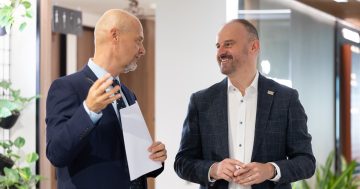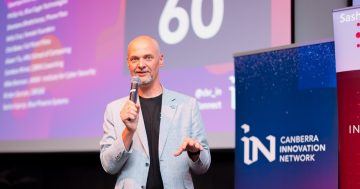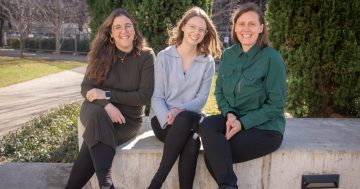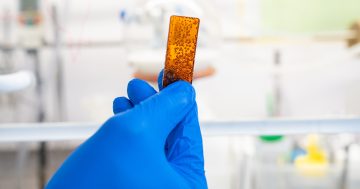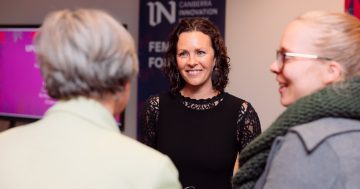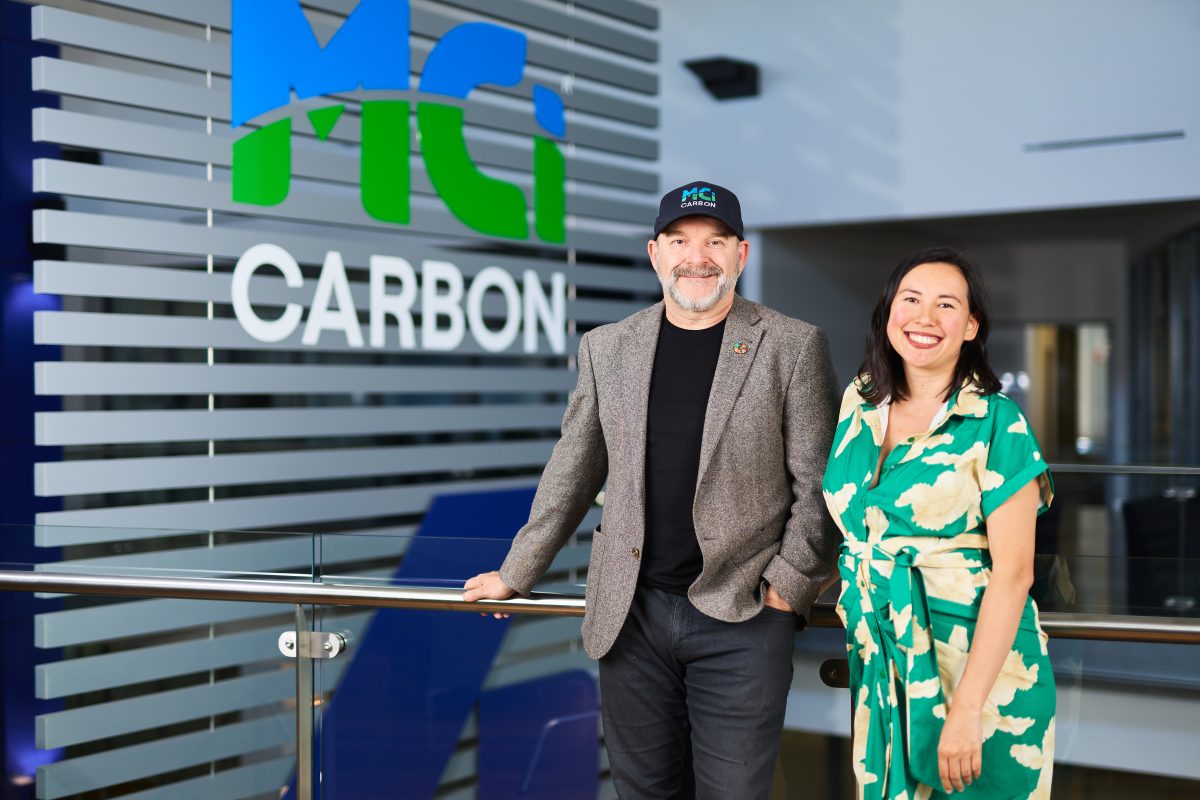
“Serial entrepreneur” Marcus Dawe joined forces with corporate social responsibility PhD Sophia Hamblin Wang and a handful of fellow innovators to co-founders MCi Carbon. Photo: MCi Carbon.
Planet Earth could be on the cusp of a world-changing technology that could lock away 10 per cent of its carbon emissions into saleable materials, and it all began in a modest co-working space near ANU.
Canberra-based scale-up MCi Carbon has received millions in funding to catapult its carbon capture innovation out of the lab and into a pilot plant in Newcastle.
The climate change remediation solution, which is based on transforming carbon dioxide from a waste product into valuable construction materials, was founded in 2013 by prominent Canberra entrepreneur Marcus Dawe, his half-sister Sophia Hamblin Wang and a handful of fellow innovators.
Put simply, it uses chemical engineering to react CO2 in a gaseous form with minerals, locking away the CO2 into solid carbonate and silica materials. These materials are then used by third parties to create low-carbon building materials and other valuable products for the circular economy.
It started as an idea, ruminated over at the first desks in the co-working spaces of the then freshly minted Canberra Innovation Network (CBRIN).
“We chose Canberra as the best place to incubate the idea and grow our company because it’s in the heart of where policy is made and has a very progressive innovation culture,” Sophia says.
“We felt it was the ideal place to be at the cutting edge of carbon technologies. In hindsight, I think that decision is one of the reasons we’re in such a leading position now.”
Marcus, a “serial entrepreneur”, joined forces with Sophia, who was doing her PhD at ANU on corporate social responsibility.
“My area of academic research, but also my passion and purpose, is around creating business models that make the world a better place,” she says.
“I am particularly interested in businesses with a high return on investment and social impact. I fundamentally believe achieving both at the same time is crucial for us to reach our global climate goals.
“Marcus’s background in tech and innovation and my background in social impact and business-for-good are very complementary, and we have a terrific technical team developing the idea.”
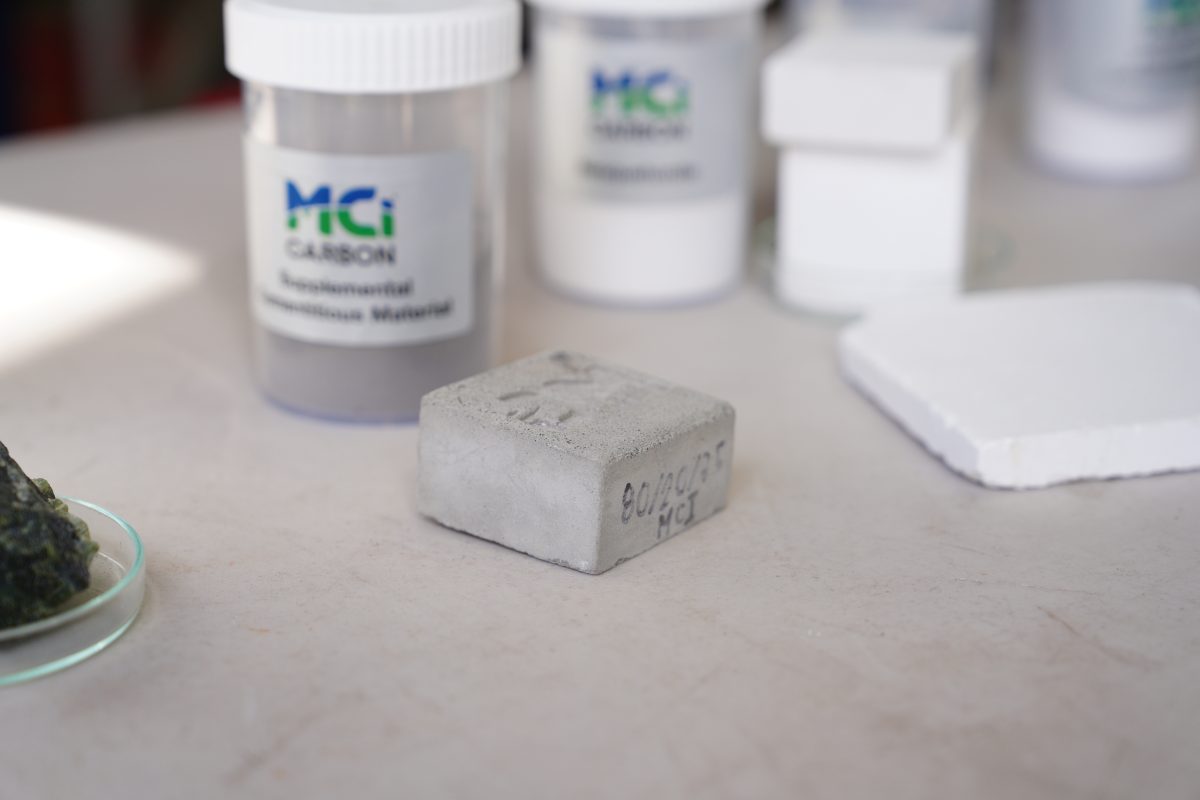
Potential product applications for carbonates include low-carbon concrete, paper, glass, plastics and paints. Photo: MCi Carbon.
The concept is based on findings, corroborated by the Intergovernmental Panel on Climate Change (IPCC), that mineral carbonation has the most profound potential for impact on decarbonisation.
“This technology could lock away 10 per cent of the world’s emissions into saleable minerals – building materials, manufacturing goods, even climate remediation applications,” Sophia says.
“We’re talking about locking away more than a million tonnes of CO2 at one site per annum, and a market that’s been estimated to be worth more than $5.9 trillion.
“There’s no scaled-up demonstration plant in the world that can validate this, so we’re building one!”
MCi Carbon received its first major grant of $9 million in its first year through the emissions trading scheme. In 2021, they received a further $14.6 million from the Federal Government CCUS Development Fund and have since raised a further US$16 million from global international investors. In July this year, a further $14.5 million came from the Federal Department of Climate Change’s Carbon Capture Technologies Program.
Construction started early this year on MCi Carbon’s demonstration plant – known as ‘Myrtle’ – in Newcastle, which is expected to start producing its first campaign with a customer early next year.
Once operational, it will be one of the first of its kind in the world to transform CO2 into solid outputs such as calcium and magnesium carbonates. Next up will be a commercially viable plant in Austria.
“We’re scaling the technology in Australia but have our eyes set on global international markets,” Sophia says.
The company has also grown to 57 people, spread across the Newcastle plant and MCi Carbon corporate headquarters, which is now located at CBRIN’s new ScaleUp Hub at 1 Moore Street.
CBRIN, which itself just celebrated its 10th anniversary, has grown alongside MCi Carbon.
“We’ve been in CBRIN co-working spaces our entire journey so far. We’ve accompanied them as a guests to many clean tech roadshows, and have been overseas with them on trade missions, marketing our product, developing our idea and attracting global investment with their support. And now we’re in the new ScaleUp Hub,” Sophia says.
“It’s an environment where we’ve been able to identify new ideas, fail fast and network with other people going through similar challenges … It’s about celebrating strengths, but sharing lessons and failures is possibly more important.
“CBRIN has been able to grow with the needs of our organisation in a symbiotic way. The day may come when we take our own office space, but for over 10 years, it’s been perfect.”
Do you have an idea that could make the world a better place that you want to develop in Canberra? Contact the Canberra Innovation Network.












